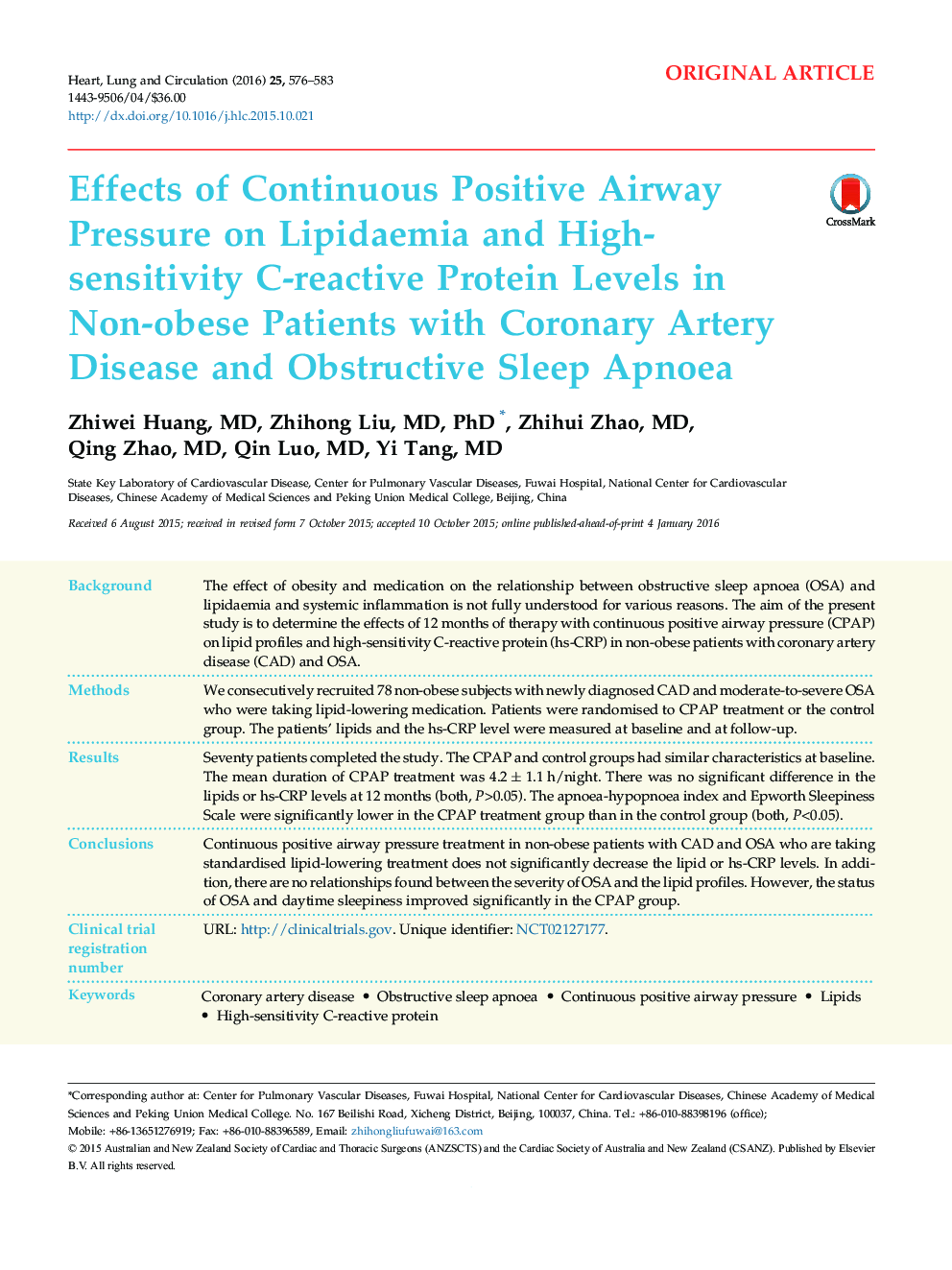| Article ID | Journal | Published Year | Pages | File Type |
|---|---|---|---|---|
| 2916864 | Heart, Lung and Circulation | 2016 | 8 Pages |
BackgroundThe effect of obesity and medication on the relationship between obstructive sleep apnoea (OSA) and lipidaemia and systemic inflammation is not fully understood for various reasons. The aim of the present study is to determine the effects of 12 months of therapy with continuous positive airway pressure (CPAP) on lipid profiles and high-sensitivity C-reactive protein (hs-CRP) in non-obese patients with coronary artery disease (CAD) and OSA.MethodsWe consecutively recruited 78 non-obese subjects with newly diagnosed CAD and moderate-to-severe OSA who were taking lipid-lowering medication. Patients were randomised to CPAP treatment or the control group. The patients’ lipids and the hs-CRP level were measured at baseline and at follow-up.ResultsSeventy patients completed the study. The CPAP and control groups had similar characteristics at baseline. The mean duration of CPAP treatment was 4.2 ± 1.1 h/night. There was no significant difference in the lipids or hs-CRP levels at 12 months (both, P>0.05). The apnoea-hypopnoea index and Epworth Sleepiness Scale were significantly lower in the CPAP treatment group than in the control group (both, P<0.05).ConclusionsContinuous positive airway pressure treatment in non-obese patients with CAD and OSA who are taking standardised lipid-lowering treatment does not significantly decrease the lipid or hs-CRP levels. In addition, there are no relationships found between the severity of OSA and the lipid profiles. However, the status of OSA and daytime sleepiness improved significantly in the CPAP group.Clinical trial registration numberURL: http://clinicaltrials.gov. Unique identifier: NCT02127177.
